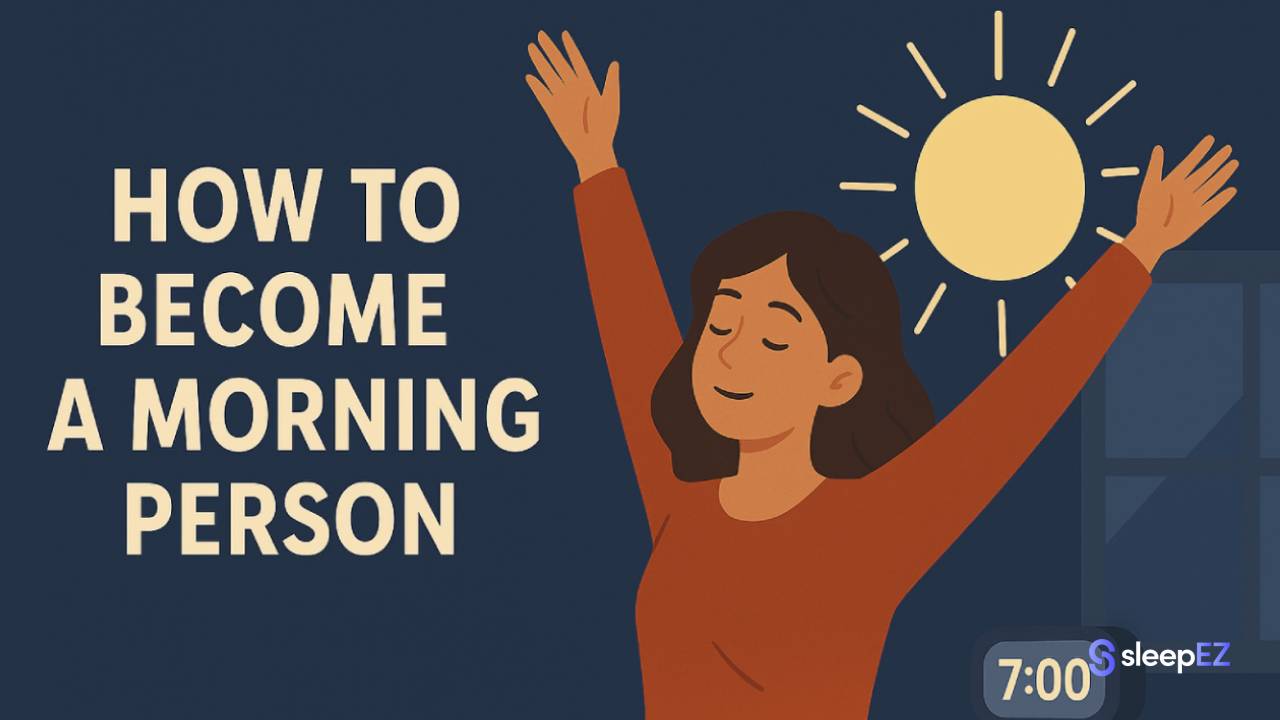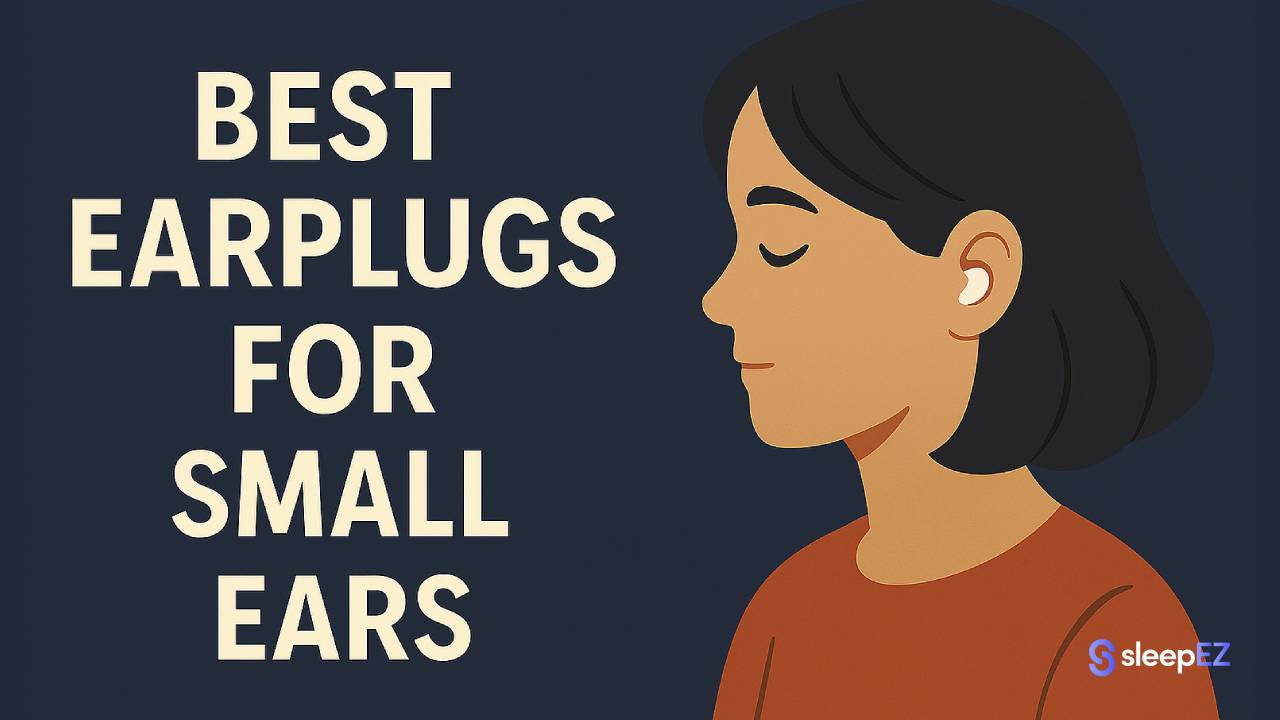Tired of hitting the snooze button and starting your day in a rush? You're not alone. Many people struggle to wake up early, but the good news is that becoming a morning person is entirely possible with the right approach.
This guide will show you practical, science-backed strategies to transform your mornings. You'll learn how to shift your sleep schedule, create habits that stick, and actually enjoy waking up early.
First, let's address why this feels so difficult. Your body has a natural preference for sleep timing, called a chronotype. Some people are wired to feel alert in the morning, while others hit their peak at night. But biology isn't destiny. You can retrain your body's clock with consistent effort.
Find Your Motivation
Before you change anything, get clear on why you want to wake up early. A vague desire won't pull you out of bed when your alarm goes off at 6 AM.
Do you want time for exercise? Quiet hours for a personal project? A calm breakfast instead of grabbing food on the go? Define your specific reason. Write it down. This becomes your anchor when motivation dips.
The Step-by-Step Strategy
These nine strategies work together to reset your sleep schedule and build lasting morning habits. You don't need to implement all of them at once, but the more you use, the faster you'll see results.
1. Make Gradual Adjustments
Don't try to jump from waking at 9 AM to 6 AM overnight. Your body will rebel.
Instead, shift your wake time by 15 minutes every few days. If you currently wake at 8 AM, set your alarm for 7:45 AM for three days. Then move it to 7:30 AM. Keep going until you reach your target time.
This gradual approach lets your circadian rhythm adjust naturally.
2. Wake Up at the Same Time Every Day
This is the most important rule. Wake up at the same time every single day, including weekends.
Yes, even on Saturday. Even when you stayed up late Friday night.
Consistency trains your body's internal clock. After a few weeks, you'll likely start waking up naturally before your alarm.
3. Optimize Your Bedtime Routine
What you do in the hour before bed matters as much as what you do in the morning.
Create a relaxing ritual that signals to your body it's time to wind down. This might include:
- Reading a book
- Gentle stretching
- Meditation or deep breathing
- A warm shower
Avoid these sleep disruptors:
- Caffeine after 2 PM
- Alcohol within three hours of bedtime
- Large meals late at night
- Bright screens (phones, tablets, computers)
Blue light from screens suppresses melatonin, the hormone that makes you sleepy. If you must use devices, enable night mode or wear blue light blocking glasses.
4. Create the Perfect Sleep Environment
Your bedroom should be dark, quiet, and cool.
Darkness is critical for melatonin production. Even small amounts of light can disrupt your sleep cycle. Make your room pitch black with blackout curtains or a sleep mask. The Dreamy Sounds Sleep Mask blocks 100% of light while playing calming audio through built-in speakers.
Sound matters too. If you live on a noisy street or have a snoring partner, white noise can help. A sound machine like the Hush+ masks disruptive sounds with soothing audio that helps you fall and stay asleep.
Keep your room between 15-19°C. Your body temperature drops during sleep, and a cooler room supports this natural process.
5. Design a Morning Routine You Actually Want
Give yourself a reason to get out of bed.
The first thing morning people do is expose themselves to light. Open your curtains immediately or step outside for a few minutes. Natural sunlight tells your brain it's time to be awake.
Then do something you enjoy:
- Drink your favorite coffee or tea
- Do a simple stretch routine
- Eat a breakfast you look forward to
- Read for 15 minutes
- Journal
- Listen to music or a podcast
The activity itself matters less than the fact that you enjoy it. You're training your brain to associate mornings with positive experiences.
6. Follow the "No Snooze" Rule
Hitting snooze feels good for about five seconds. Then it makes everything worse.
Those extra 10 minutes of broken sleep don't help you feel rested. They make you groggier. The technical term is "sleep inertia," and it can last for hours.
Make it harder to snooze by placing your alarm across the room. Once you're standing up, you're halfway to being awake.
Some people use alarm apps that require solving a puzzle or taking a photo of their bathroom sink before the alarm turns off.
7. Eat for Morning Success
Eating breakfast at the same time each day reinforces your circadian rhythm. Your body learns to expect food at certain times, which affects your sleep-wake cycle.
Aim for a balanced meal with protein, healthy fats, and complex carbs. This stabilizes your blood sugar and provides steady energy.
Skip the sugary cereals or pastries. They'll spike your blood sugar and leave you crashing before lunch.
8. Harness the Power of Light
Light is the most powerful signal for your body's internal clock.
Get at least 15-30 minutes of bright light exposure within an hour of waking. Natural sunlight works best, but a light therapy lamp helps on dark winter mornings.
At night, dim the lights in your home starting two hours before bed. This helps your body start producing melatonin naturally.
9. Be Patient and Forgiving
You will have setbacks. You'll sleep through your alarm. You'll stay up too late and feel terrible the next morning. You'll have a week where everything falls apart.
This is normal. Change takes time, and progress isn't linear.
When you have a bad morning, don't spiral into self-criticism. Just reset and try again the next day. One late night doesn't erase weeks of progress.
Your Questions Answered
How can I force myself to be a morning person?
You can't force it, but you can strategize. Focus on the core habits: consistent wake times, gradual schedule shifts, optimizing your sleep environment, and creating a morning routine you enjoy. Small, consistent actions beat willpower every time.
Why is it so hard for me to be a morning person?
Two main reasons. First, your chronotype (genetic preference for sleep timing) might lean toward being a night owl. Second, habits are powerful. If you've been sleeping late for years, your body is deeply programmed for that schedule.
The good news? While you can't change your chronotype entirely, you can shift it. And habits can be rebuilt with enough consistency.
How long does it take to become a morning person?
Research on habit formation suggests anywhere from 21 to 66 days, with an average around 2 months. For sleep schedule changes, expect to feel adjusted after 2-4 weeks of consistency.
The first week is the hardest. You'll feel tired and cranky. Push through. Week two gets easier. By week three or four, waking up early starts feeling normal.
Start Tonight
Becoming a morning person isn't about overhauling your entire life overnight. It's about making small, sustainable changes and sticking with them.
Pick one strategy from this guide and implement it tonight. Maybe you'll set your alarm 15 minutes earlier. Maybe you'll start dimming the lights after 9 PM. Maybe you'll prep your favorite breakfast for tomorrow morning.
Start small. Stay consistent. Give yourself grace when things don't go perfectly.
Your mornings are about to get a whole lot better.




Leave a comment
This site is protected by hCaptcha and the hCaptcha Privacy Policy and Terms of Service apply.